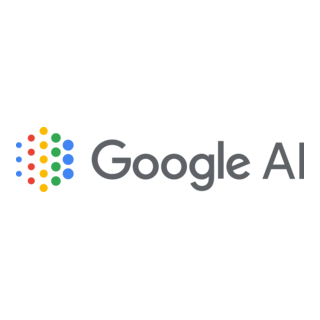Google Recommendations AI: Complete Buyer's Guide
Enterprise-grade personalization platform
Google Recommendations AI is Google's enterprise-grade personalization platform that leverages the same deep learning algorithms powering YouTube and Google Shopping recommendations to deliver AI-driven product suggestions for ecommerce retailers.
Market Position & Maturity
Market Standing
Google Recommendations AI operates from a position of significant market strength, leveraging Google's established dominance in AI research and cloud infrastructure to compete in the enterprise personalization market.
Company Maturity
Google's substantial operational scale and long-term viability are demonstrated through its established cloud infrastructure, benefiting from global deployment capabilities and enterprise-grade security that smaller vendors cannot match[55].
Growth Trajectory
Expanding customer adoption among enterprise retailers, with documented implementations across diverse industries from fashion (IKEA) to gaming (Kinguin) to apparel (Hanes)[52][54].
Industry Recognition
Google's broader AI leadership provides implicit validation of technical capabilities, though specific awards for the Recommendations AI platform are not mentioned.
Strategic Partnerships
Strategic partnerships center on Google's cloud ecosystem rather than third-party integrations, maximizing value for organizations already committed to Google Cloud infrastructure[55][58].
Longevity Assessment
Google's financial resources, continued AI research investment, and strategic commitment to cloud services strongly favor the longevity of Google Recommendations AI[55].
Proof of Capabilities
Customer Evidence
IKEA Retail achieved a 2% increase in global ecommerce average order value following platform implementation, covering implementation costs within 5 months through sustained performance improvements[52].
Quantified Outcomes
Kinguin achieved a 4x increase in conversion rates, 5 EUR higher average cart value, and 20-second reduction in customer search times through strategic integration of Google Recommendations AI[54].
Case Study Analysis
Kinguin's implementation provides detailed evidence of the platform's effectiveness in specialized retail environments, demonstrating rapid ROI realization that validates the platform's value proposition for mid-market retailers.
Market Validation
1-800-FLOWERS.COM demonstrated effective rollout strategy by prioritizing high-traffic placements including homepage and cart recommendations before expanding to full site integration[52].
Competitive Wins
Customer implementations consistently report performance improvements over previous solutions, though specific competitive displacement data remains limited in available research[52][54].
Reference Customers
Reference customers span multiple industries and deployment scales, from enterprise retailers like IKEA to specialized marketplaces like Kinguin to direct-to-consumer brands like 1-800-FLOWERS.COM[52][54].
AI Technology
Google Recommendations AI employs two-tower encoders and approximate nearest neighbors (ANN) for efficient recommendation retrieval, representing a sophisticated approach to real-time personalization that leverages Google's deep learning research from YouTube and Google Shopping[55].
Architecture
The platform's technical architecture enables global deployment with sub-100ms latency across any language, while automatic daily retraining and quarterly model tuning maintains recommendation accuracy without manual intervention[55].
Primary Competitors
Amazon Personalize, Salesforce Einstein, and specialized ecommerce platforms[57].
Competitive Advantages
Google Analytics synergy providing contextual behavioral insights unavailable to standalone platforms, and Google Cloud infrastructure enabling global deployment with consistent performance[55][56].
Market Positioning
Google Recommendations AI is positioned as a premium solution targeting mid-market to enterprise retailers willing to pay premium pricing for ecosystem integration benefits.
Win/Loss Scenarios
Win/loss scenarios favor Google Recommendations AI for organizations prioritizing Google ecosystem integration, requiring global deployment capabilities, and possessing technical resources for advanced implementation.
Key Features

Pros & Cons
Use Cases
Integrations
Featured In Articles
Comprehensive analysis of Recommendation Testing for Ecommerce for Ecommerce businesses and online retailers. Expert evaluation of features, pricing, and implementation.
How We Researched This Guide
About This Guide: This comprehensive analysis is based on extensive competitive intelligence and real-world implementation data from leading AI vendors. StayModern updates this guide quarterly to reflect market developments and vendor performance changes.
59+ verified sources per analysis including official documentation, customer reviews, analyst reports, and industry publications.
- • Vendor documentation & whitepapers
- • Customer testimonials & case studies
- • Third-party analyst assessments
- • Industry benchmarking reports
Standardized assessment framework across 8 key dimensions for objective comparison.
- • Technology capabilities & architecture
- • Market position & customer evidence
- • Implementation experience & support
- • Pricing value & competitive position
Research is refreshed every 90 days to capture market changes and new vendor capabilities.
- • New product releases & features
- • Market positioning changes
- • Customer feedback integration
- • Competitive landscape shifts
Every claim is source-linked with direct citations to original materials for verification.
- • Clickable citation links
- • Original source attribution
- • Date stamps for currency
- • Quality score validation
Analysis follows systematic research protocols with consistent evaluation frameworks.
- • Standardized assessment criteria
- • Multi-source verification process
- • Consistent evaluation methodology
- • Quality assurance protocols
Buyer-focused analysis with transparent methodology and factual accuracy commitment.
- • Objective comparative analysis
- • Transparent research methodology
- • Factual accuracy commitment
- • Continuous quality improvement
Quality Commitment: If you find any inaccuracies in our analysis on this page, please contact us at research@staymodern.ai. We're committed to maintaining the highest standards of research integrity and will investigate and correct any issues promptly.